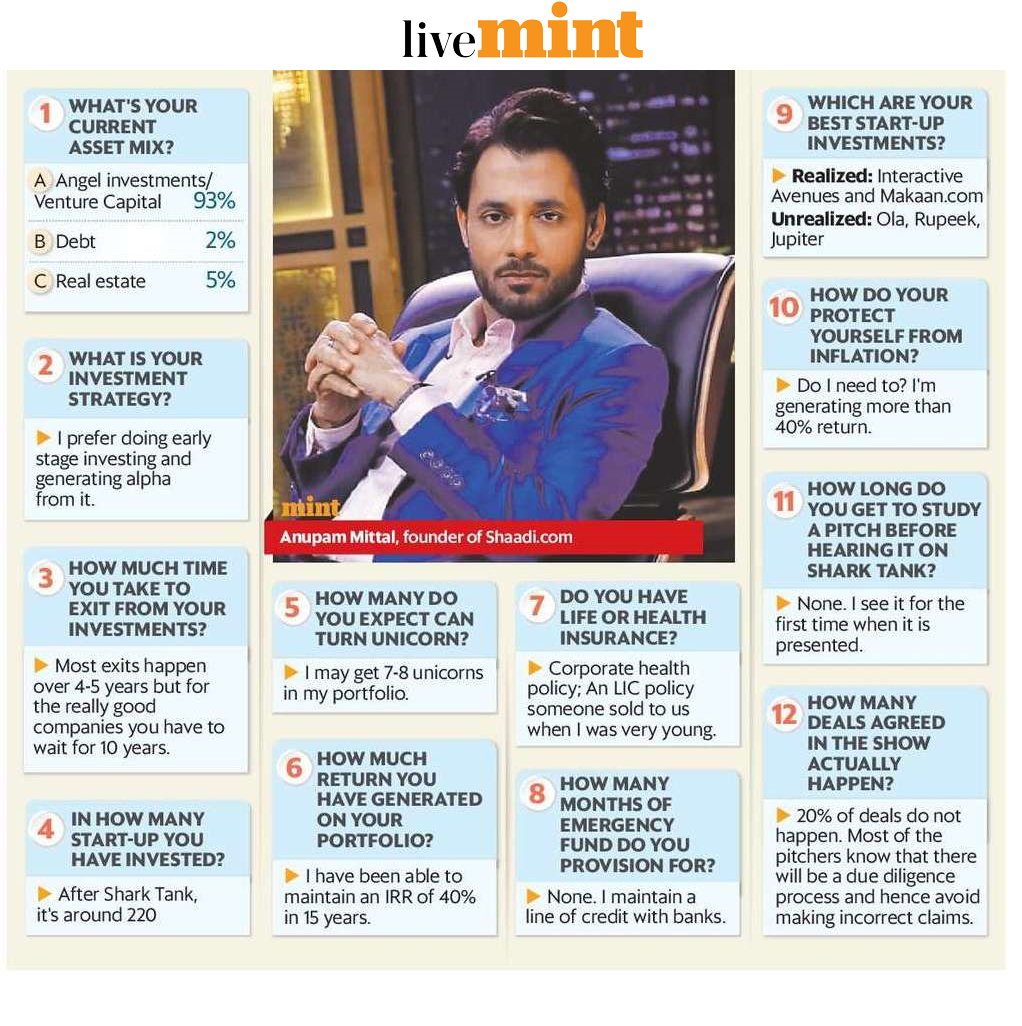
When I watched Shark Tank, I was curious about the entrepreneurs who judged pitches on the show. How did they invest their money? How important were startups to them? Was it just play money and a way to get publicity? For @AnupamMittal, startup investing is serious business 

Most of his personal portfolio (93%) is in startups. He tried his hand at listed stocks, but it didn't work. Mittal says his IRR over the past 15 yrs is 40%. But it is skewed. He has invested in 220 startups. Only a handful will succeed. Mittal expects 7-8 unicorns
Who are the winners so far? Mittal counts cos like Makaan.com, Ola and Jupiter among them. Some he has exited while others are still paper wealth. But startups are illiquid. How does Mittal manage liquidity? He says he has a credit line from banks, for 9-10% interest
When asked about inflation, Mittal says he isn't worried. When he makes a 40% IRR, inflation of 7% isn't much of a bother. But he does worry about tighter liquidity affecting the ability of startups to keep raising money. livemint.com/money/personal…
Startup investing is beyond the reach of small investors and Mittal's journey is hard to replicate. For the majority of equity investors, a #mutualfund is best. But for those who have accumulated some money and are willing to take risk, there are angel funds out there
You can read about startup or angel investing here: livemint.com/money/personal…
• • •
Missing some Tweet in this thread? You can try to
force a refresh






